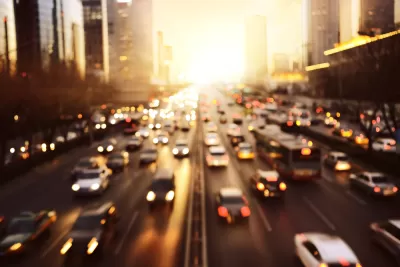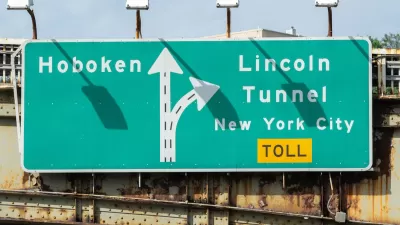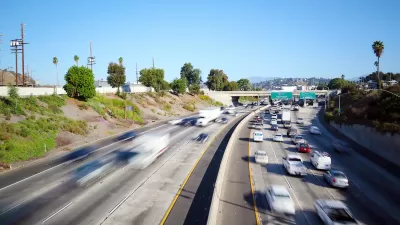Local leaders must invest in public transit and other incentives to reduce the number of private vehicles and congestion in cities.

"Understanding how cars affect cities and commute times is of vital importance, both for the sake of the climate—transportation is the biggest share of U.S. emissions and a growing chunk globally—and quality of life," writes Dharna Noor. A new study "modeled the time car trips take, factoring in the baseline length of the trip on empty streets, the time added by other drivers who create traffic, and the time added by the designation of some street lanes for exclusive use by pedestrians, buses, and bikes" to conclude that "we have to start getting cars off the road—and fast—if we want to avoid cities being overrun by gridlock."
The choice between driving and using other modes of transit, Noor writes, "creates an inherent paradox. If more people decide that driving is quicker, there will be more traffic, clogging streets and making trips longer. The longest trips across town, the authors found, were the ones taken when every single resident tries to reduce their commute times by driving, thus creating the most traffic."
"The authors also discuss some ways to reduce the time it takes to get across a city and lower carbon pollution, including investing in more reliable and quick public transit, building more bike lanes and walking paths, and not separating residential areas from commerce. They also suggest reducing the number of traffic lanes in cities and building less parking to discourage people from driving or even owning a car in the first place, making city travel faster for everyone."
Despite some limitations in the analysis, "the model is instructive, showing the logical fallacy of attempting to reduce drive times by increasing the use of cars."
FULL STORY: Why Cities Should Ban Cars, According to Science

Trump Administration Could Effectively End Housing Voucher Program
Federal officials are eyeing major cuts to the Section 8 program that helps millions of low-income households pay rent.

Planetizen Federal Action Tracker
A weekly monitor of how Trump’s orders and actions are impacting planners and planning in America.

Ken Jennings Launches Transit Web Series
The Jeopardy champ wants you to ride public transit.

California Invests Additional $5M in Electric School Buses
The state wants to electrify all of its school bus fleets by 2035.

Austin Launches $2M Homelessness Prevention Fund
A new grant program from the city’s Homeless Strategy Office will fund rental assistance and supportive services.

Alabama School Forestry Initiative Brings Trees to Schoolyards
Trees can improve physical and mental health for students and commnity members.
Urban Design for Planners 1: Software Tools
This six-course series explores essential urban design concepts using open source software and equips planners with the tools they need to participate fully in the urban design process.
Planning for Universal Design
Learn the tools for implementing Universal Design in planning regulations.
Ada County Highway District
Clanton & Associates, Inc.
Jessamine County Fiscal Court
Institute for Housing and Urban Development Studies (IHS)
City of Grandview
Harvard GSD Executive Education
Toledo-Lucas County Plan Commissions
Salt Lake City
NYU Wagner Graduate School of Public Service





























